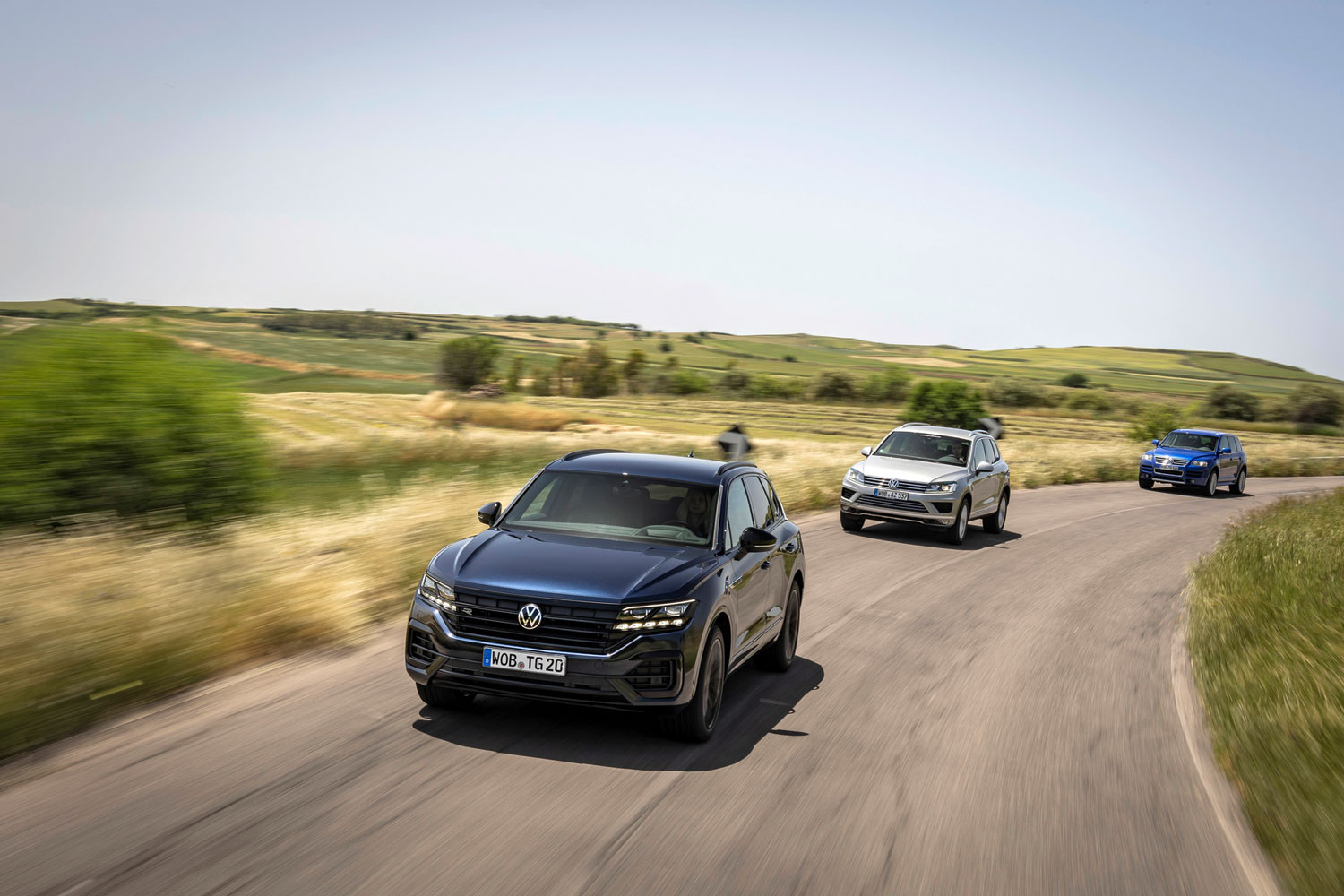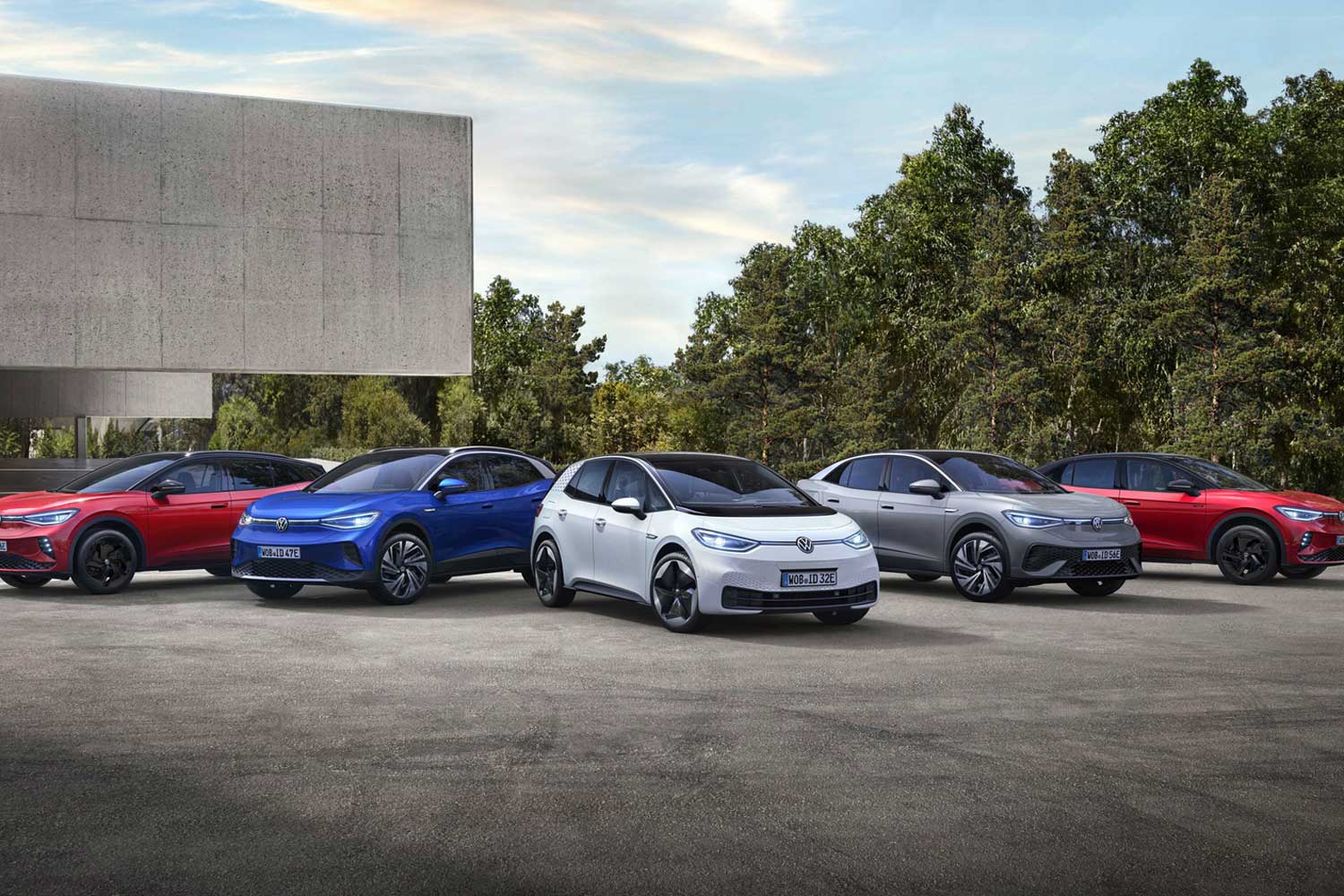How Volkswagen Can Become Relevant Again In The U.S.
The German automaker admits it needs a boost. Here’s where it can start.
 Volkswagen
Volkswagen
In the Woodstock era, Volkswagen (VW) built cars brilliantly in sync with the American zeitgeist. Its Beetle was the first import car to become a mainstream smash, a cultural phenomenon boosted by ingenious advertising that underlined the growing clout of Madison Avenue. VW’s people mover, the Type 2 Microbus became a symbol of peace, love, and counterculture that still resonates. On that foundation, VW sales peaked in 1970, with nearly 570,000 buyers and a healthy 5.6% slice of the U.S. auto market.
That success proved impermanent. In recent decades, VW has been the guy who emerges from a dressing room in a series of new outfits — only nothing fits, and everything is behind the fashion curve. By 1993, VW sales plummeted to less than 50,000, just a 0.3% slice of the American market.
Today, VW is a global giant, with 8.6 million sales worldwide last year, second only to Toyota’s 10.5 million. That has made VW’s also-ran status in the U.S. an ongoing frustration for company leaders. CEO Herbert Diess revealed in a recent 60 Minutes interview that VW had considered ditching the U.S. market entirely. Instead, Diess has vowed to make VW a player.
“We have to have a come back in the U.S. We have to become relevant in the U.S.,” Diess said.
To be fair, VW has partly managed to rebuild its American business. In 2021, the brand claimed 2.5% market share with a 15% sales bump built on the bottomless thirst for crossovers and SUVs. But it has yet to recapture its old magic — that flair for products with distinctive VW style and feel, some amalgam of German engineering and an apart-from-the-herd viewpoint. Aside from one shining exception — the Golf GTI, a high-performance hatchback with a multi-decade history of excellence — there’s little in VW showrooms that draws American shoppers with the urgency that the Beetle and Microbus engendered.
A Record of Missed Opportunities
Beyond the retreat of that once-beloved VW-ness, the brand has been dogged by serial missteps and misreadings of what American buyers want. VW was slow to identify and compete in America’s rising sales segments; its cars and SUVs were often judged too small, too expensive, or both. The openings it left were soon enough filled by Japanese carmakers and later by the Koreans.
For instance, VW failed to create a compelling modern entry for a segment it had essentially created — minivans. Other models were wildly off the mark: The Phaeton, a luxury sedan that could top $100,000 in 2004, garbled the image of what the People’s Car company should be. Likewise, the first-generation Touareg SUV of 2003, a joint project with Porsche that produced the uber-successful Cayenne, left VW with another overpriced headache. Wolfsburg’s reputation for quality had been kicked to the curb, it seemed, but equally damaging was the confusion sown over what a Volkswagen logo should reflect.
The VW credo of straightforward products suffered further in the Dieselgate scandal that broke in 2015. The emissions-cheating affair, a devious software subterfuge, left some executives jailed and cost VW $10 billion in fines and settlements. Dieselgate also killed VW’s chance to benefit from a devoted following it enjoyed among Americans who adored those frugal cars.
 Volkswagen
Volkswagen
How VW Can Get Back on Track
Like General Motors or Ford — automakers that know all too well about quality woes and bungled opportunities — VW may have its best shot in years at rebuilding its business and image. Like its rivals, VW is determined to transform itself into a force in electric cars.
VW’s brands are already neck-and-neck with Tesla for leadership in European EV sales. The company now plans to invest $7.1 billion in North America alone over the next five years and introduce 25 new EVs by 2030, looking to derive 55%of its sales from plug-ins. It will soon begin building its ID.4 electric SUV in Chattanooga, Tennessee, and is considering a second EV plant there along with a battery-cell factory.
Despite a barrage of VW publicity, the generically styled ID.4 arrived to lukewarm reviews and sales. The ID.4 found 16,700 customers in 2021 — barely a tenth of Tesla Model Y sales and well below the 27,100 of Ford’s Mustang Mach-E. That reception suggests the company needs to move faster to bring models to showrooms that are more distinctive and more desirable.
Playing the Nostalgia Card
For years, VW teased a revival of its beloved Microbus,such a must-have model The electric version, called the ID. Buzz, will make a dawdling U.S. arrival in 2024, aiming to tap into the sizzle surrounding the Ford Bronco and Land Rover Defender with a heavy dose of nostalgic styling. The Bronco and Defender — both conventional gasoline SUVs — are already here and snapping up customers. Throwbacks are a sound strategy.
The Bronco and Defender also underscore VW’s biggest blind spot here: The lack of rugged, off-road SUVs and trucks that are enjoying a cultural moment and delivering eye-popping profits to automakers. Taking the “if you can’t beat ’em, join ’em” solution, Volkswagen plans to create an American-centric company to revive the long-dormant Scout name, used by International Harvester beginning in the 1960s. Concept versions of an electric Scout pickup and SUV are planned for 2023, but they won’t arrive in showrooms until 2026.
Other Paths to Restoring VW’s Luster
What else can VW do to jump-start its stateside business? To support its ambitious manufacturing plans, VW could open a design and product development center in the U.S., akin to Toyota, Honda, or Hyundai, to better monitor trends and tastes.
Analysts suggest Hyundai Motor Group may be an ideal template for VW: By focusing on distinctive design and quality, and tailoring cars to the American market, Hyundai has become a juggernaut, with more than a million combined annual sales for its Hyundai and Kia models, twice VW’s volume; its fast-growing Genesis luxury brand is a bonus. The Korean trio is also scoring hits in EVs with the Hyundai Ioniq 5, Kia EV6, and Genesis GV60.
In the 60 Minutes interview, Diess said VW won’t be battling only legacy automakers, but hungry EV startups and tech companies.
“Historically, there haven’t been too many cases where the successful companies in the old world could demonstrate they are still successful in the new world,” Diess said.
For VW to be the exception, it may need the sales, spotlight and legitimacy conferred by succeeding in the U.S.
Written by humans.
Edited by humans.
 Lawrence Ulrich
Lawrence UlrichLawrence Ulrich is an award-winning auto writer and regular contributor for a variety of national newspapers, magazines, and web sites. He and his territorial cat are Brooklyn-based. Lawrence is also the proud owner of a fast-but-frustrating 1993 Mazda RX-7 twin-turbo R1.
Related articles
View more related articles